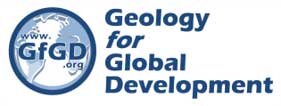Opportunities in education and career development for the geohazards community in Guatemala
Unveiling key insights into Guatemala's geohazards community, a new GfGD-commissioned report led by Dr Ailsa Naismith aims to fortify education and professional development, enhancing disaster resilience and sustainable development efforts.
This week the global volcanology community gathers in Antigua, Guatemala, for the 12th Cities on Volcanoes conference. To mark this event, we are releasing a new report that characterises Guatemala’s professional geohazards community and profiles their education and career development priorities.
The report aims to support international organisations and individuals working in Guatemala and with Guatemalan scientists to tailor their capacity-strengthening activities.
Commissioned by Geology for Global Development (GfGD), this work was led by Dr Ailsa Naismith (University of Bristol, UK), with support from Professor Eliza Calder (University of Edinburgh, UK) and Dr Rüdiger Escobar-Wolf (Michigan Technological University, USA).
The report identifies education and career development challenges including insufficient geohazards education, lack of connection between universities and institutions, and poor retention of staff within governmental institutions related to employment conditions.
Relationships with organizations outside Guatemala appear to be an important source of opportunity for many professionals but are also potentially problematic when that interaction distracts agencies from their core work, according to their mission and mandate.
The report goes on to make recommendations for stronger geohazards education, better inter-institutional collaboration, and greater job security for government staff.
Dr Joel Gill (Chief Executive Officer, GfGD) notes:
“This work created a space for the voices of Guatemala’s hazard scientists to be heard, their challenges understood, and their professional development priorities captured. We are hugely grateful to Ailsa for leading this work, and to all those in Guatemala who generously shared their insights and ideas. Guatemala, the wider Central American region, and the world will benefit from a well-resourced and supported professional geohazards community. This report will inform our future work to help realise this.”
Guatemala is affected by multiple, interrelated natural hazards, with resulting disasters disproportionately affecting the most vulnerable communities and hindering efforts towards sustainable development. Reducing disaster losses is therefore embedded into the UN Sustainable Development Goals and is the primary aim of the Sendai Framework for Disaster Risk Reduction.
This work aims to support Guatemala’s current professional geohazards community (and wider communities of practice), recognising their significant role in delivering a safe, resilient, sustainable Guatemala where no one is left behind.
This report builds on previous work supported by Geology for Global Development in Guatemala. In 2019, we supported the 1st National Congress on Integrated Disaster Management in Guatemala, sponsoring Guatemalan and Mexican students, NGOs, and risk management officials to attend.
This output represents a collaboration with the GCRF-funded Ixchel project (NE/T010517/1), and was made possible thanks to the donations of individuals, groups of students, and a grant to GfGD from the International Union of Geological Sciences.
Read the full report: https://www.gfgd.org/publications-and-reports (Se está preparando una versión en español de este informe. Por favor, vuelve a consultar aquí pronto)

